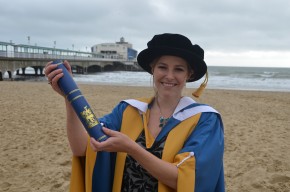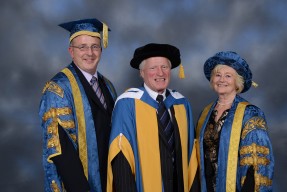Research conducted by Bournemouth University’s Alison Hillyer has been featured on a BBC programme looking at primates.
Monkey Planet, currently showing on BBC1, featured research into the Red Colobus monkey and its interactions with another species, green monkeys, and how their relationship has developed through living in the same habitat. Specifically, the programme showed how the red colobus monkeys form special multi-species associations that are most likely a way of improving predator detection.
BU’s research at the site is mostly concerned with the conservation status of Temmincki’s red colobus in the region and is aimed at developing an integrated conservation strategy for the region that involves experts in tourism (Vijay Reddy and Feifei Xu) and primatology (Amanda Korstjens and Alison Hillyer) and is conducted in close collaboration with the local authorities.
Alison Hillyer invited the BBC to the site for filming and advised them on the transcript for the sequences. The research and filming took place in The Gambia, more information about the project can be found on BU’s research pages.
The Temmincki’s red colobus monkeys (not to be confused with the Zanzibar Red Colobus) are in need of protection to avoid their extinction. BU students have been invited back to The Gambia in July 2014 for a new inter-disciplinary project that aims to develop a sustainable long-term strategy to support local development and conservation in The Gambia through eco-tourism business.
The programme can be viewed again on the BBC website for the next seven days.
 Bournemouth University
Bournemouth University
